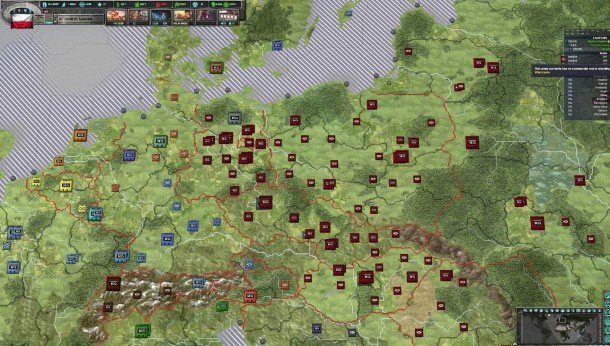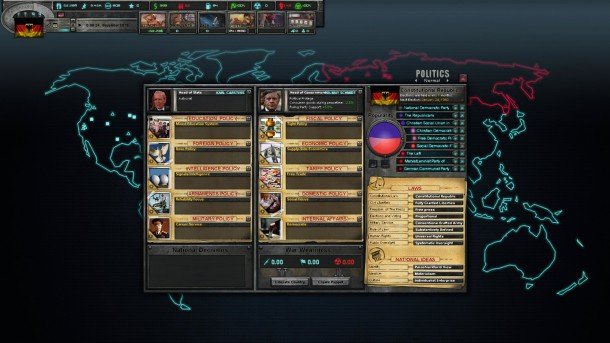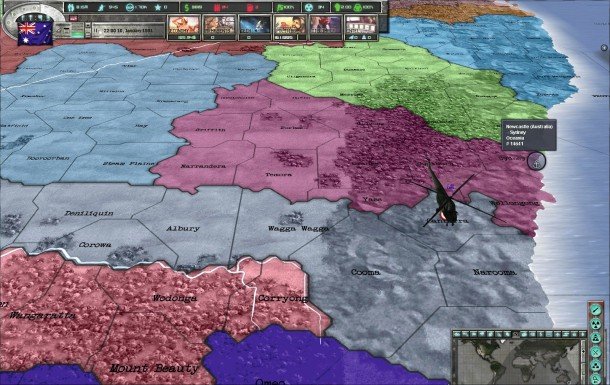East vs West preview - to nuke, or not to nuke?

Think of it like playing chess with your little brother and he annoys the crap out of you, so you just sweep his pieces off the board,” says Gellert Keresztes. “That's pretty much what nukes do.”
"The doomsday clock marks the world's proximity to all-out nuclear war"
The lead designer of East vs. West is selling me on the advantages of global thermonuclear war. He doesn't have to sell me very hard: the cold war is the perfect setting for a grand strategy game, because like grand strategy games, the cold war was about more than straightforward military combat. It was about politics, economics, culture and how even small countries can have a large impact on the world stage.
East vs. West is spun-off from one of Paradox's other venerable strategy series, Hearts of Iron. Where that game lets you craft an alternatehistory World War II, EvW is set between 1946 to 1991, and uses that setting as a platform to represent some of the most important events of modern history and all the enduring imagery that goes with it: DEFCON levels reflect your nation's state of alert, spies can be sent to corrupt hostile territory, you can compete in a space race, and the doomsday clock marks the world's proximity to all-out nuclear war.
In the demo I'm shown, Keresztes selects the game's predefined Israel scenario, beginning with that country's formation in 1948. It's a tough starting position. He's immediately at war with Jordan and Palestine, Egypt is extremely pissed at him, he has no money, and the doomsday clock is at five to midnight.

"you might control America and not start the Vietnam war until the '90s. Or turn the whole nation communist, just for kicks."
The first step is to win the wars, through whatever means necessary, but it won't be easy. As well as simulating nation states, the game's world map is split into tactically significant regions. Gaza, for example, is clearly marked.
Each country also has its own unique demographics: its population divided into age groups. This lets you clearly see the impact of your decisions upon your population, such as when a long military campaign wipes out your nation's young men. Each nation also has its own culture: Israel's people have a territorial focus that makes them determined to hold on to their homeland. Culture is hard to change, but through long, concerted effort, you might change the very fabric of a nation.
Although predefined scenarios provide a good starting points, there's nothing to stop you embracing the full sandbox and blazing your own trail. You could play as Britain in 1946 and stop Israel from existing until the 1960s.
Keep up to date with the most important stories and the best deals, as picked by the PC Gamer team.
Or you might control America and not start the Vietnam war until the '90s. Better yet, turn the whole nation communist, just for kicks. Or you might, if you're anything like me, sweep all the pieces off the chessboard, just to watch them fall.


